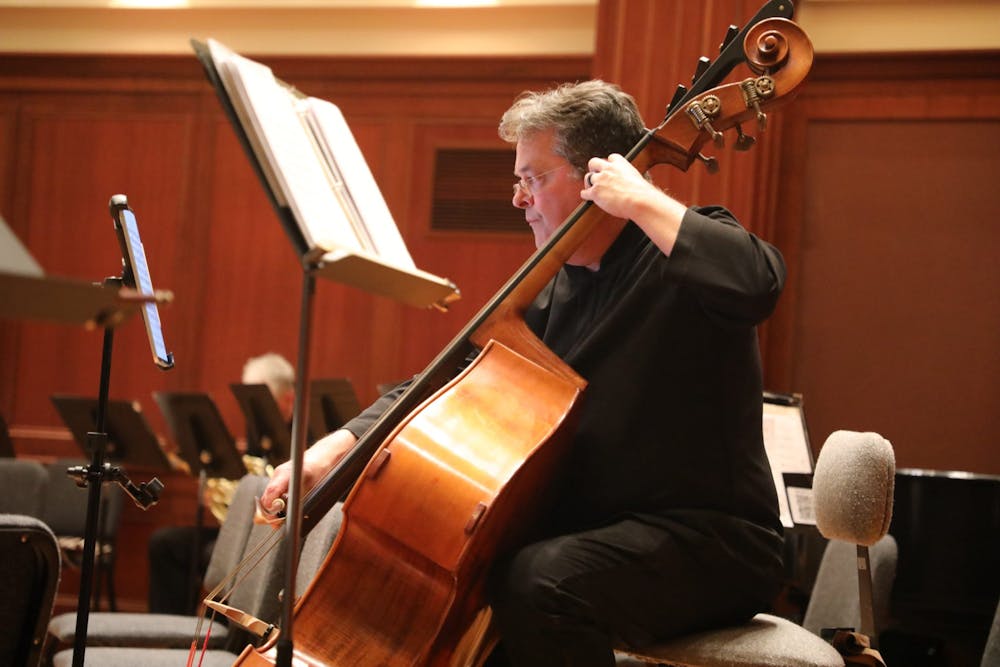By Mia Shea
Staff Writer
As a part of the School of the Arts and Communication’s new series, “Communication for the Common Good,” the College’s orchestra put on a show-stopping performance.
Pamela Barnett, dean of the School of the Arts and Communication, opened the concert by sharing that this series is centered around promoting “healthy, democratic discourse for the big questions, the hard and complex issues that face our country that so often divide us.”
The first piece of the night was titled “Lincoln Portrait,” composed by Aaron Copland. The program for the concert stated that Copland composed this piece after he was asked to write a “portrait of an eminent American” to “celebrate the American spirit.” It was scored for both an orchestra as well as a speaker.
This moving piece featured Christopher Fisher, interim dean of the School of Humanities and Social Sciences, as the speaker. According to the concert’s program, the speech portion of the piece was “composed using speeches and letters from Lincoln along with descriptions of his appearance and demeanor.”
This symphony was reminiscent of everything that Abraham Lincoln stood for and was a reminder of the common good series’ ideals: freedom and bringing together the American spirit.
Lauren Holmes, a junior music education major, said she thought the concert was wonderful and she loved the level of patriotism in “Lincoln’s Portrait” in particular.
“It was really cool seeing the dean of the School of Humanities and Social Sciences do the narration,” Holmes said. She also thought “it was cool that they used Aaron Copland, who is an American composer.”

The program for the concert allowed audience members to follow along with Fisher’s speech and the other songs (Photo by Andre Paras).
The next part of the concert was Symphony No. 9 in E minor, Op. 95, composed by Antonin Dvořák in America, although Dvořák was a Czech composer. This piece is also referred to as “The New World Symphony.” In terms of the series, this piece was representative of forward-thinking and integration. The piece also contains spiritual Native American influence.
“The New World Symphony is just a timeless piece and there is a reason it's performed so often, and the orchestra did it very well,” said Holmes.
The orchestra was versatile as they played the softer, quieter parts of each piece and transitioned to the fast-paced, hard-hitting climaxes.
Freshman English secondary education major Abby McCool shared that she initially came to the show to support her friend, Grace Lampmann, who played the violin.
“I thought it was incredible. I really liked the first piece because I’m also a big history nerd,” McCool said. “So I thought that the integration of the speech was really interesting and really beautiful overall and they all did such a good job.”
The concert itself was beautiful and the concert hall was packed with spectators indulging in the powerful symphonies. The College’s orchestra did a spectacular job incorporating the message of finding the common good in everyday situations.







